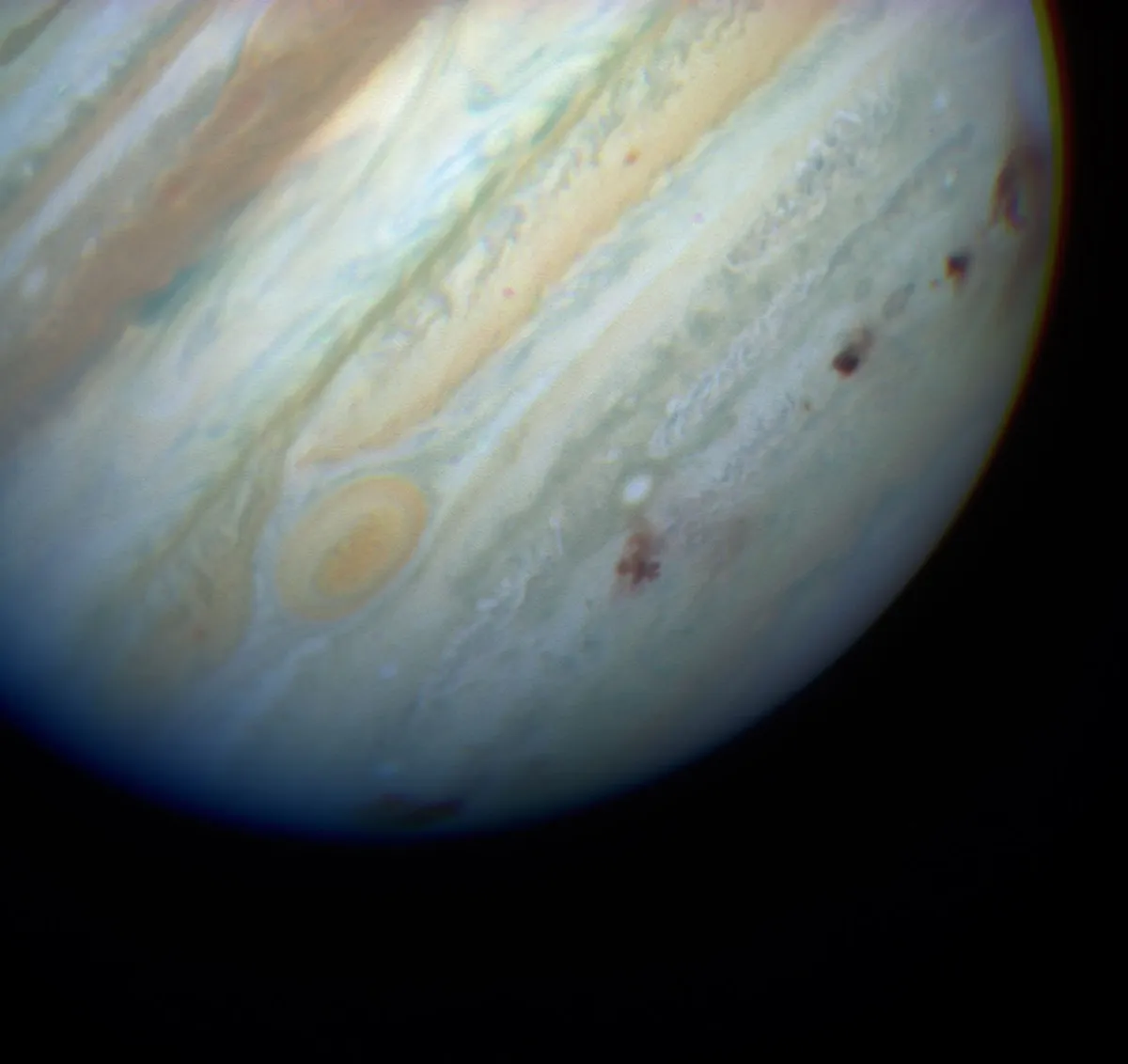The likelihood of Earth being impacted by a sizeable asteroid or comet is slim… but not zero.
Asteroid 2024 YR4 is currently making headlines as NASA has said its the chance of it hitting Earth in 2032 has risen to 2.3%

And take comet Shoemaker–Levy 9, for example, which crashed into Jupiter in July 1994.
If Shoemaker–Levy 9 had impacted Earth instead of Jupiter, life as we know it would have been wiped out, just like the dinosaurs were 66 million years ago.
The chance of a comet or asteroid of this size hitting us is extremely small – it’s estimated to happen around once every 10 million years.

Small vs big asteroids
Once a year, asteroids around 3 metres (10ft) in diameter are likely to smash into Earth and disintegrate in the atmosphere, posing no real threat to us.
Asteroids with a diameter more than 30–50 metres (100–150ft) are large enough to make it through our atmosphere intact, however, and the chance of this happening is estimated to be around once in every 100 years.
The damage from an impact of this size would be wide-ranging, and could wipe out an entire city if they were to impact a heavily populated area.
Asteroid YR4, for example, is estimated to be between 40-100m in diameter.

Close calls
In November 2020, an asteroid named VT4 came within 383km (238 miles) of Earth’s surface.
The 10-metre-diameter (32ft) object passed closer than any other known asteroid, around the same altitude as the International Space Station's orbit, and was only discovered 15 hours after its closest approach.
So what are the chances of an asteroid hitting Earth in future? And are we prepared for an asteroid hitting Earth?
Earth’s next close encounters, in 2029, 2035 and 2036, with 390-metre-wide (1,279ft) asteroid Apophis, only highlight the importance of keeping our eyes to the sky and equipping ourselves to respond to any impending impacts.
This article appeared in the July 2024 issue of BBC Sky at Night Magazine
